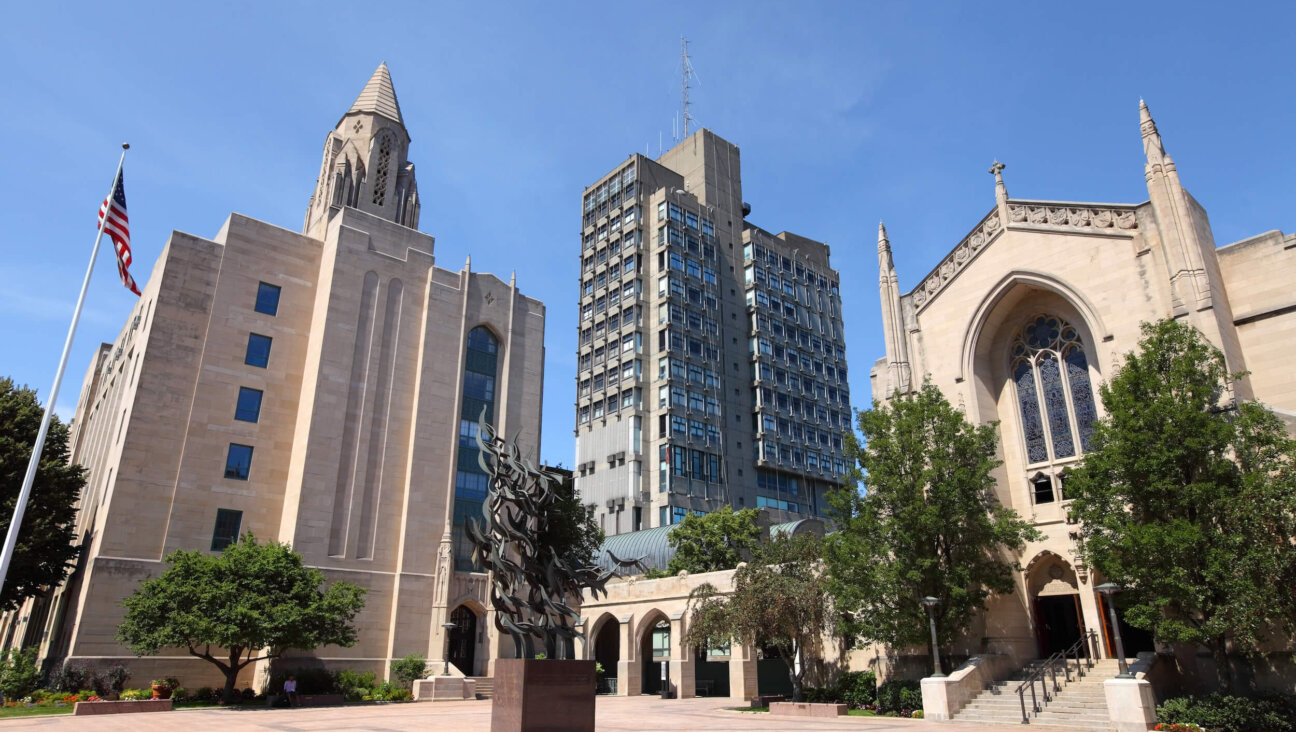Knesset Banks Bill Requiring 66% Majority To Negotiate Jerusalem Status

Image by JTA
The cabinet won’t be able to even negotiate the status of Jerusalem without the approval of a two-thirds majority in Knesset favoring talks, according to a bill the Ministerial Committee for Legislation approved on Sunday.
Prime Minister Benjamin Netanyahu opposes the motion.
The cabinet can still torpedo the bill if it backs the appeal that Justice Minister Tzipi Livni, who heads the Ministerial Committee for Legislation as well as the Israeli peace negotiation team, has said she will file.
Yair Lapid, leader of the Yesh Atid party – who has said he does not want Jerusalem to be divided – also opposed the bill. But he refused Livni’s request to join her in appealing it.
There are currently no constraints on the topics that may be discussed in negotiations.
Netanyahu is expected to come out in favor of Livni’s appeal, in an effort to keep the bill from being passed. Likud sources said Netanyahu hadn’t attempted to make sure the ministerial committee toed the line because he mistakenly thought it wouldn’t get this far in the first place.
The Safeguarding Jerusalem Bill mandates that 80 MKs approve negotiations with a foreign entity before the government may negotiate dividing the capital or handing over any part of it. It is expected to have a chilling effect on peace talks with the Palestinians, since the status of Jerusalem is one of the most contentious issues keeping Israelis and Palestinians from reaching a deal and the law would mean negotiators could not even begin to discuss it until the Knesset makes its own decision on the matter.
Jerusalem “shall not be divided, or parts of it handed over to anybody,” states the explanatory section of the bill. “The sanctity of Jerusalem shall not be given to outsiders,” it says. “This bill averts the possibility that at any stage of a political [peace] process of any sort, there will be not even a single discussion about the status of the city of Jerusalem.”
MK Yaakov Litzman (United Torah Judaism), who sponsored the bill, said he sought more than a simple majority of 61 MKs, in an effort to make it more difficult for proponents of dividing Jerusalem to win Knesset approval.
“Since there have been instances in which talks have begun on handing over various parts of the city, we have to pass a law that won’t offer even the possibility of raising such an option at the start of negotiations,” said Litzman. “Due to the concern that under some circumstances it will be possible to secure a majority to grant [the government] the ability to actualize the concern that they will discuss the division of Jerusalem, this bill comes along to require a majority of 80 Knesset members, which cannot be secured effortlessly, to preserve a united an eternal Jerusalem until the redeemer arrives, may he arrive quickly.”
Under the bill, if Israel reaches a deal on dividing Jerusalem without first getting the approval of two-thirds of the Knesset, the agreement will not be binding. The Knesset, cabinet and Jerusalem municipality are explicitly exempted from having to implement any agreement on Jerusalem reached without prior legislative approval.
The bill won the support of five ministers from Likud, Habayit Hayehudi and Yisrael Beiteinu. The four ministers on the committee from the Hatnuah and Yesh Atid parties opposed it.
This article originally appeared on Haaretz.com.
















